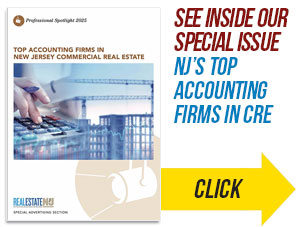Ten years ago, Superstorm Sandy slammed into New Jersey, killing 38 people, devastating coastal areas, inflicting billions of dollars in damage and causing power outages for millions of residents and businesses for weeks. For many, it was a turning point that changed the way they invested and did business. Given today’s accelerating pace of life-altering disruptions — the pandemic, inflation, Russia’s invasion of Ukraine, extreme weather events — I believe New Jerseyans are ready to modify their behavior to reduce their risk and financial exposure to the adverse impacts from climate change.
Policy Page
Our updates and analysis will keep you informed of every piece of legislation and public policy issue that affects commercial real estate in New Jersey, from a zoning dispute or a proposed change to the tax code.
Environmental justice: Restoring livability or Pandora’s box?
Enactment of the groundbreaking New Jersey Environmental Justice Law and the recently proposed rules to implement it are commendable efforts to improve conditions in communities burdened by decades of industrial pollution from Title V-covered facilities, notably solid waste facilities and power generation facilities. Although the proposed regulations appear not to currently impact the small-scale commercial and warehouse industry sectors, there is growing concern there will be a proliferation of municipalities adopting ordinances under the guise of environmental justice that are actually aimed at thwarting smart development and critical redevelopment and that broaden the types of regulated facilities.
Decarbonization, electrification journey driving investment and business decisions
As we celebrate Earth Day, it’s impressive to see how many more investment, siting, purchase and business decisions are being driven by growing public demand to reduce our carbon footprint. Government agencies, investors, consumers and businesses are quickly becoming aware of the need and benefits of embracing this paradigm shift. Owners and developers of commercial and industrial real estate property are increasingly accommodating their tenants’ demands for charging stations, solar panels and other brokered services. The popularity of electric vehicles (EV) continues to gain momentum across the globe as green investing is influencing automakers’ plans and the economics of owning an EV are becoming more favorable. Sustainability has become mainstream as society realizes its benefits, including lower costs, cleaner air, less traffic congestion, higher rate of return on investments, less dependence on foreign oil, better quality of life and less extreme weather.
Labor force challenges: An intense and growing concern
Fortunately for New Jersey, international migration of the foreign-born is countering the outflow of our domestic population. This trend, however, should not be taken for granted, as immigrants are now heading to other gateways. It is crucial for our economic competitiveness that New Jersey maintain its historic attractiveness for these international arrivals.
ESG: An effective agent for positive change and a profitable ROI for CRE
What is ESG — or environmental, social and governance? It is basically a framework to assess how a commercial real estate portfolio manages risks and opportunities resulting from shifting conditions, market and otherwise, to environmental, social and economic systems. Environmental criteria address a company’s impact on and stewardship of the environment. Social criteria refer to how a company manages relationships with and creates value for stakeholders, such as customers, employees, suppliers, communities and shareholders. Governance criteria refer to a company’s leadership and management philosophy, practices, policies, internal controls and shareholder rights, including diversity, equity and inclusion and transparency of procedures and decision-making.
Infrastructure investment: A winning strategy for resilience
We can likely all agree that modern and efficient infrastructure systems are a major factor in real estate development and investment decisions. Such strategic, long-term investments lead to increased opportunities for commercial real estate development and result in stronger job creation and economic growth for our communities.
CRE sentiment rises, but weighed down by construction cost challenges
Improving economic conditions have led to an improvement in the NAIOP CRE Sentiment Index, indicating both overall optimism and several ongoing concerns. However, respondents are now more pessimistic about construction costs than in any prior survey, and most expect construction labor costs to increase.

















